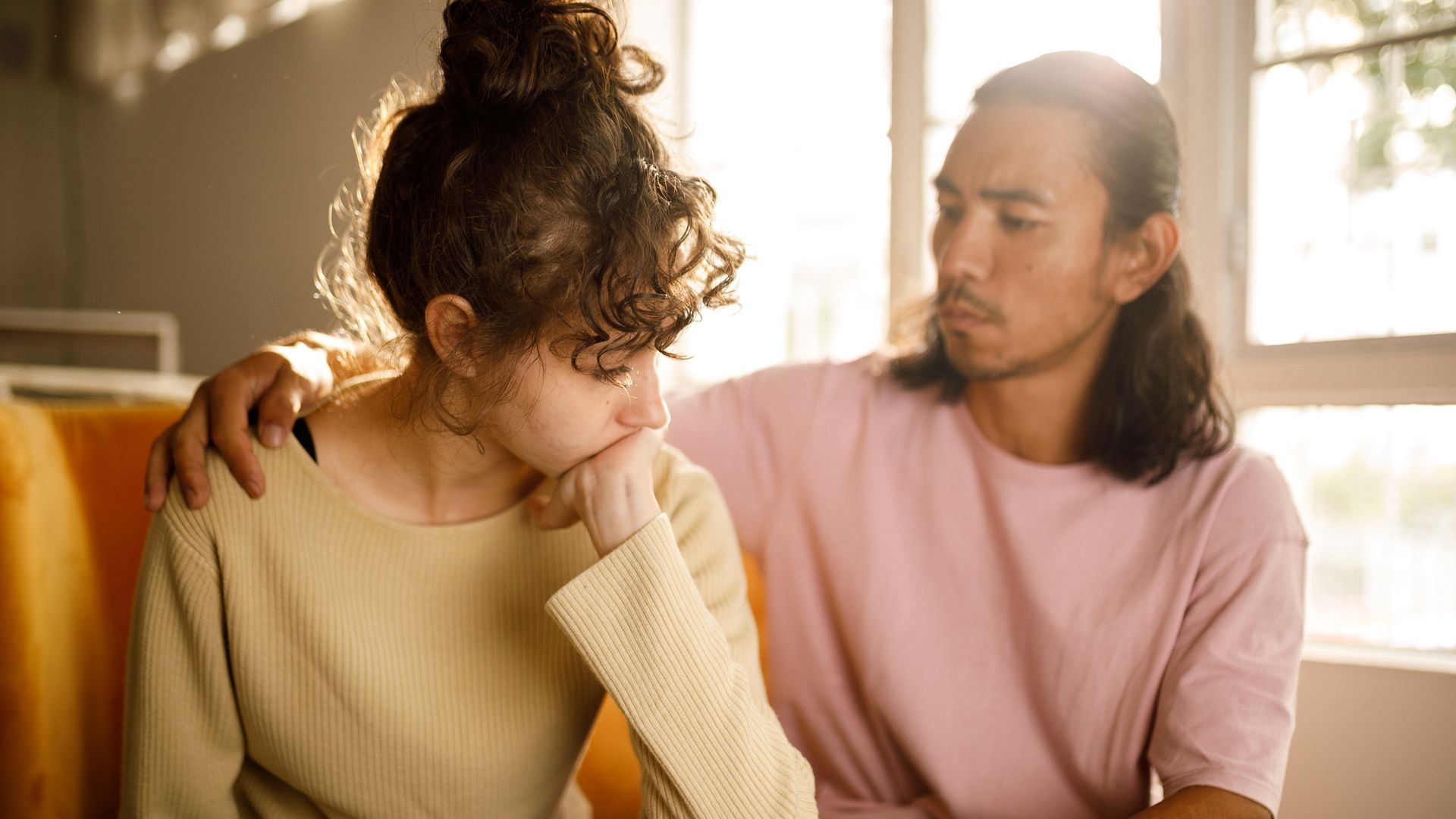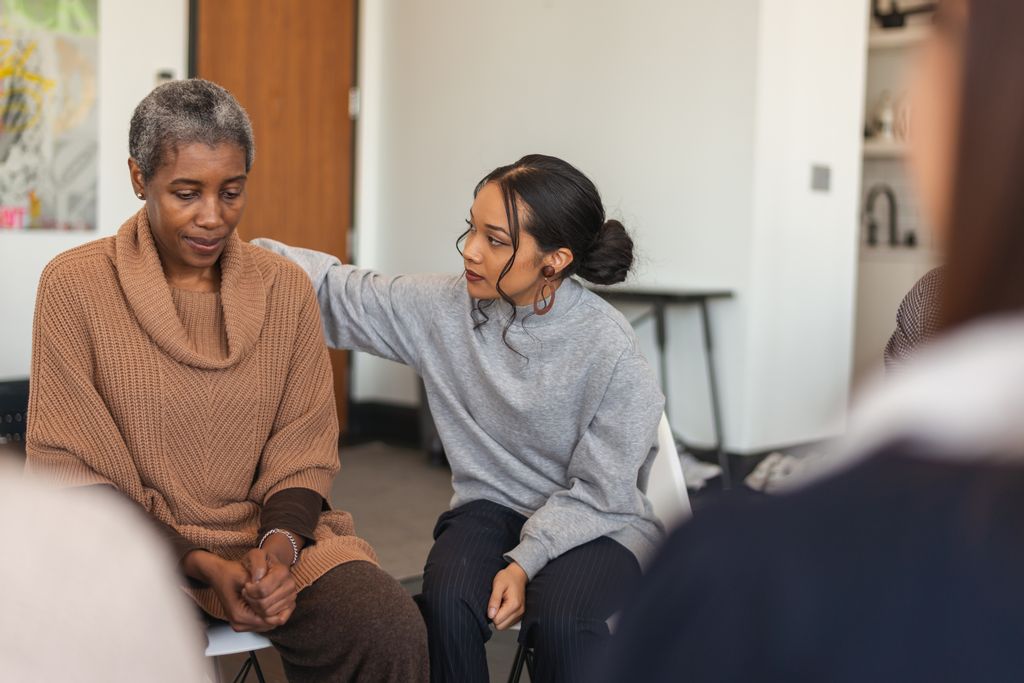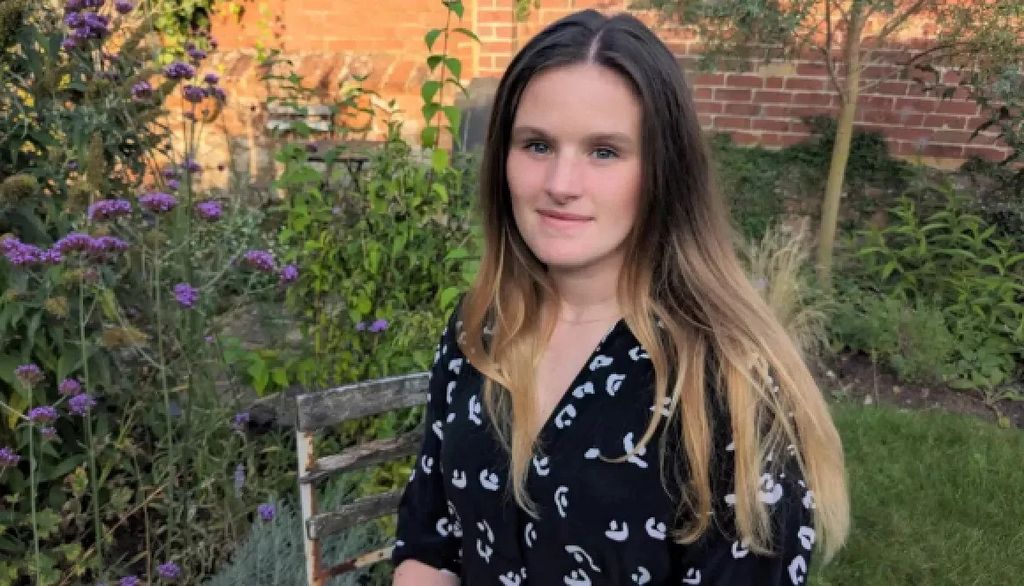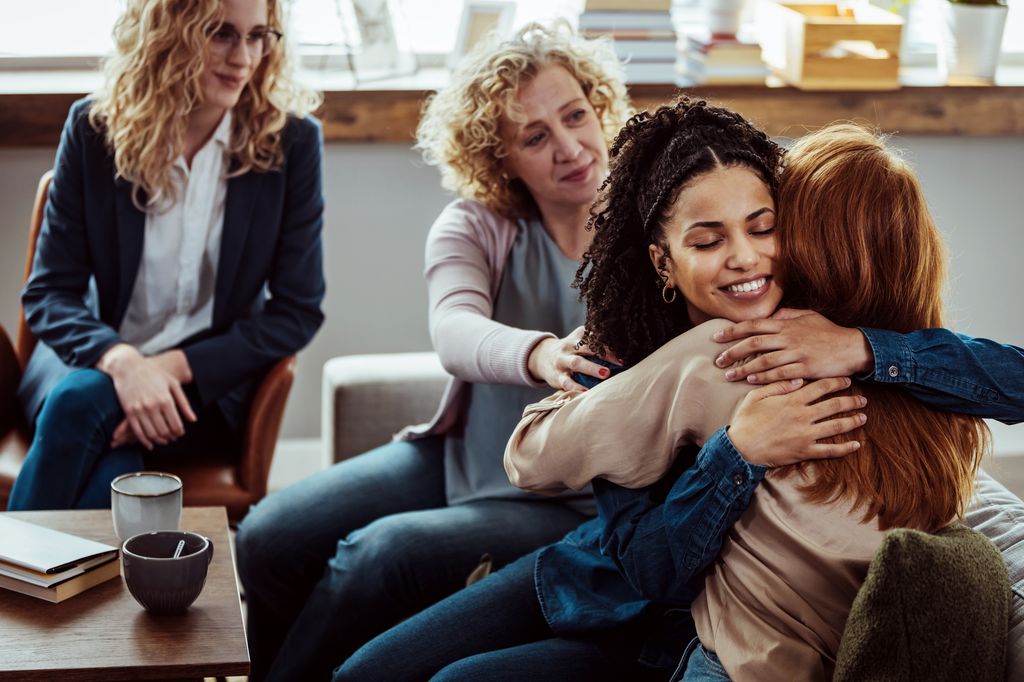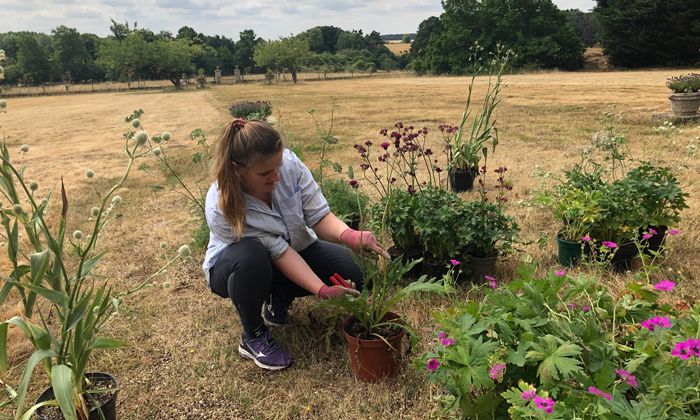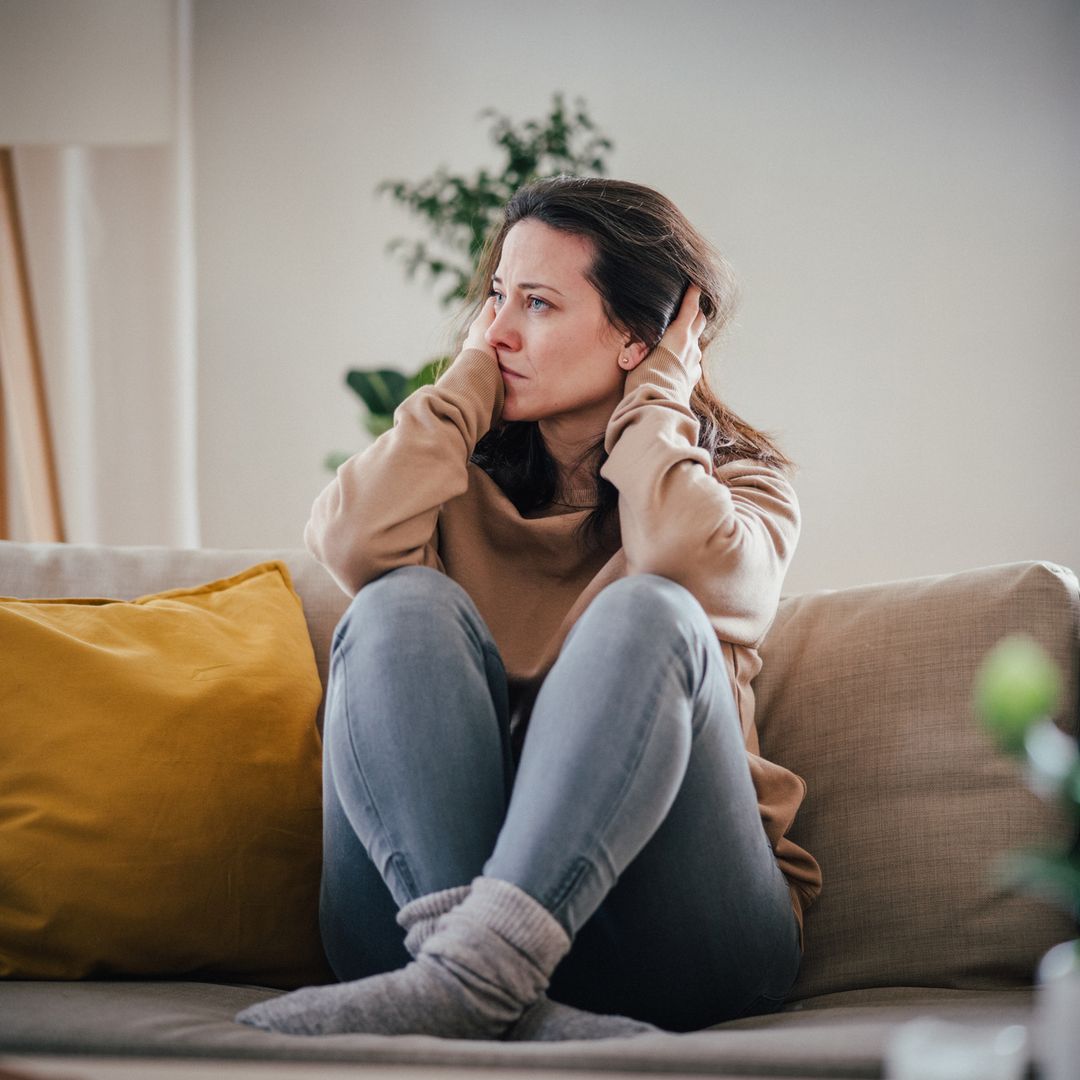If you've ever lost someone you love, you'll know how isolated you can feel. On the flipside, if you've ever needed to comfort someone going through loss, you'll likely know the feeling of not being sure what to say.
Research by Sue Ryder confirms this, with almost half the public sharing that they're not sure what to say when someone tells them a close relative or friend has died, while 86% of bereaved people have felt alone in their grief.
As a nation known for our stiff upper lip, it's no wonder we're at a loss of what to say when someone is going through loss – but why are we still so uncomfortable talking about grief when it's something we all go through?
"We not only don’t talk about grief, we go to great lengths to avoid talking to people who are suffering," says Lulu Sinclair, a BACP-accredited psychotherapist who specialises in grief. "We avert our eyes, we look the other way, we may even cross the road, anything to steer clear of having to confront a situation which we don’t know how to handle.
"We may feel uncomfortable talking about grief because we have a fear of saying the wrong thing," Lulu says. "We are frightened of upsetting someone – or upsetting them more – so we prefer to avoid the whole subject. We do not know what to say and we will do anything to avoid putting ourselves in a situation where we feel awkward."
Sara Matthews, BACP-registered bereavement counsellor agrees, adding: "When people are grieving the last thing we want to do is make things worse. The fear of saying the wrong thing can make people afraid to say anything."
This was something Katherine Holland experienced after losing her mum. "I think the reason people don’t want to talk about grief is through fear of upsetting you or because they can’t fix it. They then become awkward, so begin to avoid the topic and the person who is grieving."
Sara agrees that our desire to make things better when someone is hurting can hold us back from speaking about grief: "Often our instinct when someone is in distress is to try to be helpful and make things better. Death is not something we can fix. It is final. This can make people feel there is nothing useful they can do or say."
Despite our discomfort when faced with someone who is grieving, it can make the world of difference to the bereaved. "All anyone can do is be supportive of someone’s grief and realise that they can’t fix it," says Katherine.
READ: What therapists want you to know about grief
"My husband and friends were so supportive and realised it wasn’t sympathy that I needed, I just wanted company. Friends would come over and play board games or bring cooked dishes, knowing that I was in a difficult place but weren’t avoiding me. Instead, they were actively doing things with me – which I found hugely beneficial."
Katherine adds that talking about her mum helped her move through her grief, sharing: "Being able to speak about my mum when I was finding things difficult gave me the opportunity to remember nice details about her or a funny event. It meant I could embrace both sides of the feelings I was experiencing with my grief. People listening helped me to feel confident to talk about all the happy things my mum and I did together and how hard I found it losing her."
In her bid to help others cope with grief, Katherine, who is an award-winning garden designer, worked with Sue Ryder to create the Sue Ryder Grief Kind Garden at the upcoming RHS Chelsea Flower Show. The garden aims to provide a sensory sanctuary for visitors to reflect and share their own experiences of grief.
Katherine's garden is particularly relevant due to the fact that 40% of people surveyed by Sue Ryder say that gardening has saved them from their grief, while 56% said gardening provides a sense of routine and purpose while grieving. On top of that, 73% agreed that nature helps heal during bereavement.
Of her grief garden, Katherine says: "I want to encourage people to go outside to reflect and find a space in nature to be with their feelings in the beauty of nature.
"I found I needed this when I lost my mum and this inspired the Sue Ryder Grief Kind Garden. I want it to emulate the green space I needed when I was grieving and to give others a 'green hug'. I want the garden to encourage people to find somewhere to sit within their grief and feel safe doing so, as well as let them know it’s ok to feel rubbish and let others know you’re not having a good day. Grief is always there, life does grow around it but will never be the same again."
RELATED: How gardening helped me navigate my year of heartbreaking loss
How to talk to people about grief
If you're struggling to support loved ones during their difficult time, Sara and Lulu have a few words of wisdom to help you help them.
1. Keep it simple
"Don't discount the value of a straightforward expression of sympathy. A simple 'I'm so sorry,' can be enough," says Sara.
2. Remember it's not about you
"It is not about us, it is about them," says Lulu. "It is about really reaching out and putting your own anxiety aside to do the right thing. It’s called empathy. Putting yourself in someone else’s shoes."
3. Ask open questions
"Ask questions that encourage the bereaved to talk and show them that you are interested and not afraid to hear the truth for example: 'How are you spending your days at the moment?'" suggests Sara.
READ: I had no idea my mum’s death would shape my whole relationship
4. Talk about the person they've lost
"Don't avoid talking about the person who died," encourages Sara. "Often the bereaved say they want to talk about the person they have lost, and they want to hear things about them that they might not know. Sharing stories and memories can be comforting and enriching."
5. Offer specific help
"Offer specific and practical help such as an invitation to go for a walk, or to cook something for the bereaved person," says Sara. "This is usually better than the generalised "Is there anything I can do?" as they may not know how to respond."
Find out more about the support Sue Ryder offers those grieving.
